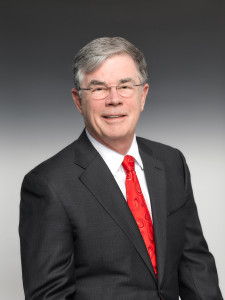The Most Profound News of Valentine’s Day 2017
By David Evans, NSTA Executive Director
Posted on 2017-02-16
This Valentine’s Day, while most media attention was focused on the dismissal of the National Security Advisor, The New York Times ran a story that received much less media attention, but has far greater potential impact on our nation’s future.
Amy Harmon reported in the article, Human Gene Editing Receives Science Panel’s Support, about a just-released study by the National Academies of Science, Medicine, and Engineering (Human Genome Editing: Science, Ethics, and Governance. National Academy Press, 2017) that supports continued research and application of genetic modification of human cells, including those cells that pass genetic information to the next generation.
Writes Harmon, “The advisory group endorsed only alterations designed to prevent babies from acquiring genes known to cause ‘serious diseases and disability,’ and only when there is no ‘reasonable alternative.’ The report provides an explicit rationale for genetic research that the federal government has avoided supporting until now, although the work is being pursued in countries like Sweden and China.”
One year ago, scientists stated that the ethical questions associated with the genetic modification of human germ cells could be deferred because the risks associated with the methods were too great to permit even exploratory testing. How quickly the science and the technology have changed!
Most importantly, the report calls for extensive public participation in the discussion of the future use of the technology: RECOMMENDATION 7-1. Extensive and inclusive public participation should precede clinical trials for any extension of human genome editing beyond treatment or prevention of disease or disability.
The students in our classes now will soon be in their childbearing years and will be directly affected by the decisions that will be made in the near future. Will they be able to join this discussion? Will they know enough about science to successfully question the evidence? Assess the risks? Understand the benefits?
While science and STEM education are critical “workforce” issues, let’s not forget that science literacy for all is an essential skill and knowledge base for citizenship, now more than ever. We are living at a time when our leadership does not see the need for science in its decision making and may favor “alternative” facts over scientific facts.
Understanding and teaching about the human role in modifying our climate has been challenging to date, but imagine teaching about our role in altering mankind. The stakes are high, and arguably human genome editing will have a greater impact than who is at the helm of the National Security Council.
 Dr. David L. Evans is the Executive Director of the National Science Teachers Association (NSTA). Reach him via e-mail at devans@nsta.org or via Twitter @devans_NSTA.
Dr. David L. Evans is the Executive Director of the National Science Teachers Association (NSTA). Reach him via e-mail at devans@nsta.org or via Twitter @devans_NSTA.
The mission of NSTA is to promote excellence and innovation in science teaching and learning for all.
Follow NSTA
Disclaimer: The views expressed in this blog post are those of the author(s) and do not necessarily reflect the official position of the National Science Teaching Association (NSTA).


